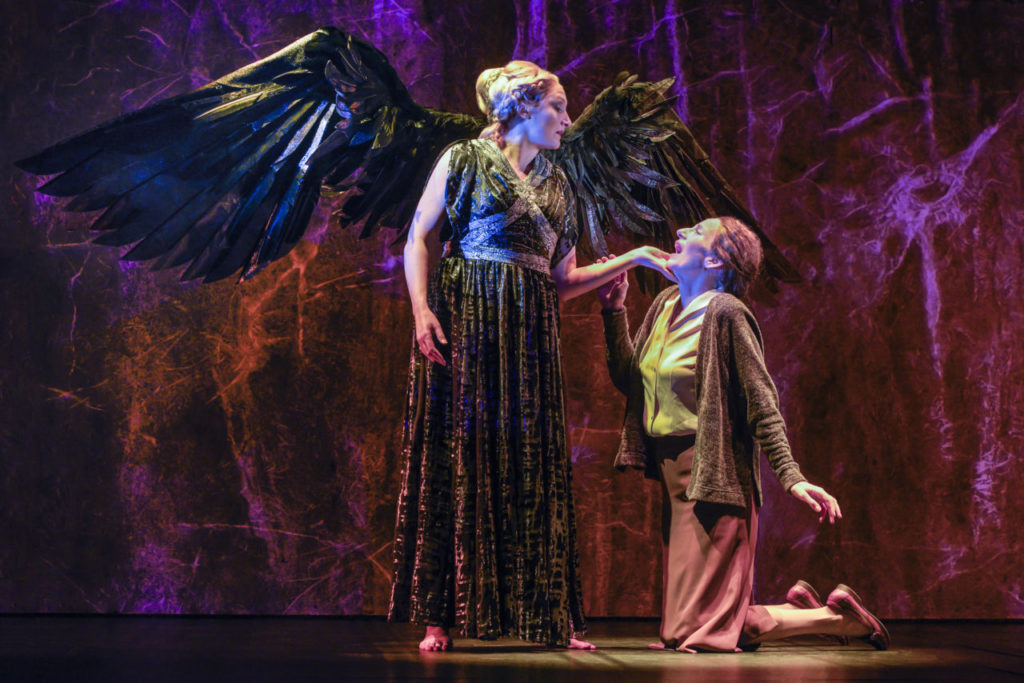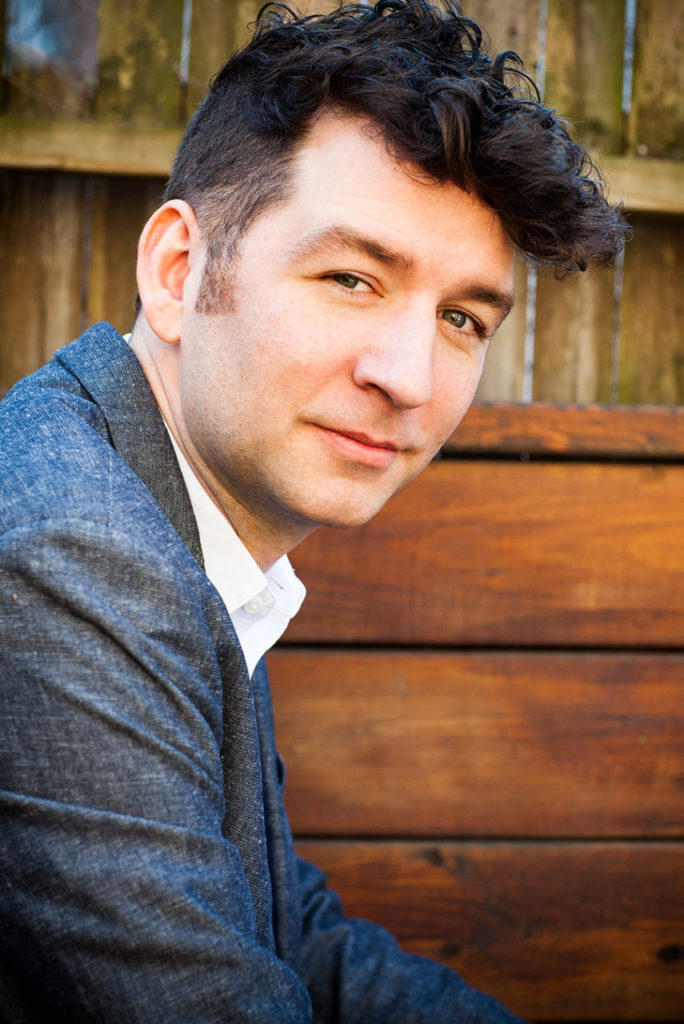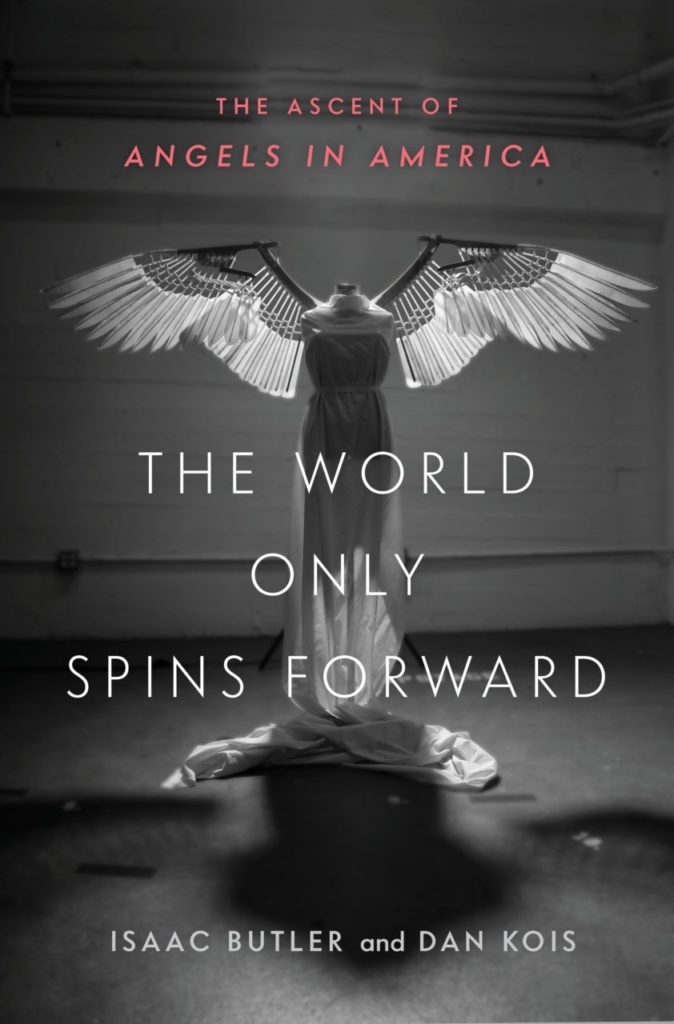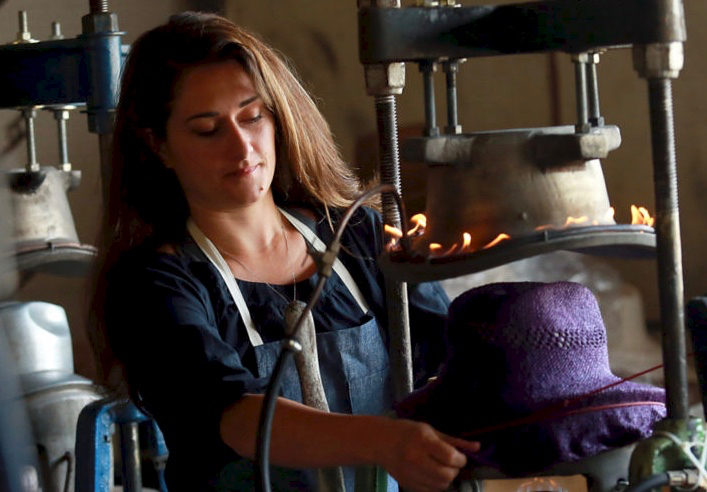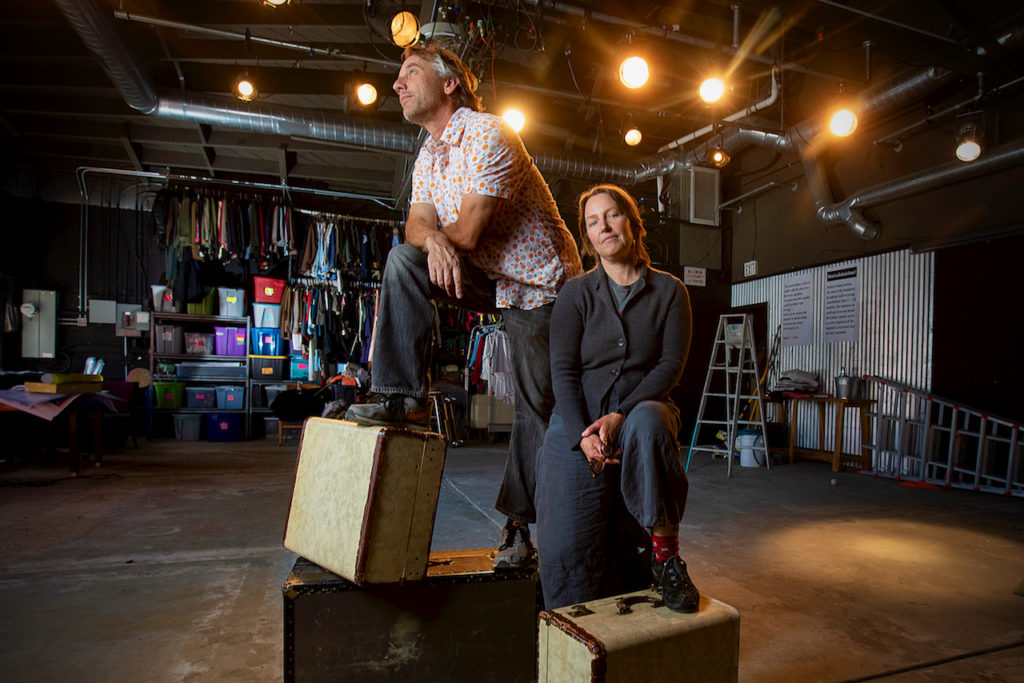“Angels in America,” Tony Kushner’s Pulitzer Prize-winning epic, began with a dream and a poem. It was late 1985, Kushner had recently graduated from NYU’s directing program and the first person that he knew personally had just died of AIDS.
“I had this dream,” Kushner said in a Slate cover story titled “The Oral History of Angels in America.” “Bill is dying…and the ceiling collapsed and this angel comes into the room. And then I wrote a poem. I’m not a poet, but I wrote this thing. It was many pages long. After I finished it, I put it away. No one will ever see it. Its title was “Angels in America.”
Six years later, Kushner’s poem had become a play. It premiered at the Eureka Theater in San Francisco’s Mission District and when it hit Broadway in 1993, The New York Times called it “the most thrilling American play in years.”
Set against the AIDS crisis and Reagan era politics, “Angels in America” surveys a fragmented United States in a time defined by fear. In Kushner’s version, America is a puzzle where the pieces don’t fit together; a mythological melting pot where spirits of the past and of the yet to come hover over people who haven’t quite found a way to melt.
The play, subtitled “A Gay Fantasia on National Themes,” is fiercely political — it portrays the pervasive nature of oppression, prejudice and power struggle — but it also prompts the audience to ask bigger questions: What shapes my identity? Are we the product of immutable circumstance? Or can we shed skin and change?
While “Angels in America” is specifically about the experience of gay men in the mid 1980s, Kushner extends the use of his leitmotif to examine the intersecting topics of sexuality, race, religion, democracy and freedom (among others). Through a series of intimate two-person scenes, he exposes conflicting beliefs and viewpoints and, while he’s at it, reveals both the serious and the humorous implications of those conflicts.
At the center of this spinning wheel of ideology is Roy Cohn, a modern Mephistopheles (or a Scrooge that never turns good) based on the real-life McCarthy aide and defense lawyer by the same name (Roy Cohn was also a lawyer and mentor to Donald Trump).
At once timely and timeless, “Angels in America” has become a cultural blockbuster, adapted on stages around the world and made into an award-winning film. Last year, the play was revived at the National Theater in London. This spring, it returned to Broadway with a cast led by Andrew Garfield and Nathan Lane. (Bay Area theatergoers can see “Angels in America” at the Berkeley Rep through July 22.)
As it turns out, the story behind “Angels in America” is as captivating as the play itself. On the 25th anniversary of its premiere, Slate published “The Oral History of Angels in America” in which Mr. Kushner, directors, producers and actors, tell the story of the play’s “turbulent ascension into the pantheon of great American storytelling.” This collection of stories has now been expanded into a book by authors Isaac Butler and Dan Kois (who both authored the Slate article).
On May 8, at 5:30 p.m., Isaac Butler and members of The Imaginists Theatre Collective will read from “The World Only Spins Forward: The Ascent of Angels in America” at the Astro Motel in Santa Rosa. The event is free and open to the public. (Tickets are required – get them here.)
Mr. Butler is a writer and theater director, most recently of “The Trump Card,” “a meditation on the peculiar rise of Donald Trump.” Below, Butler talks about the story behind his book, his first experience of “Angels in America,” the revival of the play in a time of Trump, and more.
What inspired you to write a book about “Angels in America?”
“When Dan and I started working on the Slate article, it quickly became clear that the history of “Angels in America” was too big for an article. The story was complicated, dramatic, thematically rich and often very funny — much like the play itself — and the people we interviewed, particularly Tony Kushner, were great storytellers [Butler and Kois interviewed some 250 people for the book].
When it came to assembling these stories, the feel we wanted to create was that of an infinite, rollicking cocktail party where everyone has had a couple of drinks and are more honest than they normally would be.”
When did you first see “Angels in America,” and what was your experience?
“It was the early ‘90s, I was a teenager acting in local productions and my parents bought me tickets to “Angels” on Broadway. It was this utterly life changing experience. It felt like the play contained everything that was going on in the world around me — all at once. I remember leaving the theater and feeling like everything had changed: I was walking through Times Square and the neon lights looked different, the air felt different on my skin. I had become a new person and I understood for the first time how my artistic and political inclinations could live together.
When Dan and I started working on this project, it turned out that almost everyone we interviewed — whether they were in the play, taught the play, directed the play, saw the play, read the play — shared a similar experience. This isn’t a play that a lot of people have a casual experience of; people feel transformed by it.”
Do you see any similarities between the America described in the play, and America today?
“In our book, Tony Kushner says: ‘the play doesn’t describe a time of great triumph, it describes a time of great terror, underneath the surface of which seeds of change are beginning to push upward and brew. Apparently nothing good is happening, but good things are happening.’
While the plot mechanics of the AIDS crisis and gay rights don’t have the same immediacy today as they did during the time “Angels” was written — although people are of course still dying from AIDS and there’s still a lot of progress to be made when it comes to gay and lesbian, and especially transgender, rights — the themes of the play have even more immediacy today than they did when it premiered in the early ‘90s.
The themes of ‘are we going to change or are we going to stay the same,’ ‘what kind of America do we want to live in,’ ‘what is a citizen,’ ‘who gets access to the rights of citizenship’ — those questions are very much front and center today. And then, of course, Roy Cohn’s protege is now our president.”
Are there any particular lessons in “Angels in America” worth considering today?
“There are two core things in “Angels” that are important to keep in mind: First, that change is fundamentally a part of the human condition. It is part of being alive, and change cannot be stopped. The idea that you can turn back the time on progress is abhorrent, and it comes at a great cost. Second, the play has encoded in it this strong, implicit argument for the necessity of hope; the belief that hope can be a political force for good even in the darkest time. But it’s not a myopic hope, it’s not a hope born out of denial, it is a furious, hard-won kind of hope.
The play is charging you, very overtly, with its last line: “The Great Work Begins” — that great work is you. It is now your task to drive change and move forward with hope.”
What: Isaac Butler Reads from “The World Only Spins Forward: The Ascent of Angels in America”
When: Tuesday, May 8, at 5:30 p.m.
Where: The Astro Lounge at The Astro Motel, 323 Santa Rosa Avenue, Santa Rosa 95404
Cost: Free (tickets are required as the event is expected to reach capacity). All guests will receive a $10 voucher toward dinner at The Spinster Sisters that evening.
Tickets: eventbrite.com










